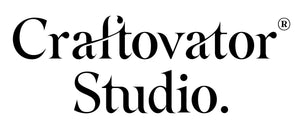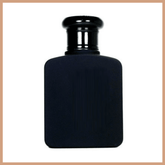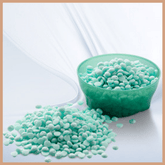Legal Requirements for Selling Candles & Wax Melts
We've created this comprehensive guide on selling your handmade candles to abide by UK regulations.
You love making candles and wax melts and all things craft and now you want to start selling them? You have a website ready, reliable suppliers on hand and the most important thing, deliciously scented candles waiting to be sold – but you’ve still got one more thing to do. And that is, to sort out everything from the legal side of things.

The law relating to candles is complex and technical, but every candle making business owner needs to be aware of the laws in place which are ultimately there to protect the business as well as the customers.
This article is a good checklist to ensure you’ve covered everything from insurance to labelling – the last thing you want as a new, small business is to be unknowingly on the wrong side of the law!

As you’ll be selling your candles on a retail level, your local authority Trading Standards services will be the body you’ll be dealing with. It would be advisable to make a note of the Trading Standards office that is local to you (you can do so here: https://www.gov.uk/find-local-trading-standards-office).
The current law that applies to the overall safety of goods is The General Product Safety Regulations 2005 (GPSR for short). There aren’t any specific laws that relate to just candles, but there are some ‘European standards’ which give clear guidance on candle safety and are recommended to adhere to as they demonstrate ‘due diligence’ under the GPSR.
Insurance
Whether you sell your candles, wax melts or diffusers through your own website, through sites such as Ebay, Etsy or Amazon or even at a Summer fete, it’s important to make sure that you have Craft insurance in place to cover your business against any unforeseen circumstances.
Imagine building up your business with things going great, candles flying off the shelf and money-wise everything is looking positive, but then one of your customers has a house fire, claiming it started because of one of your candles.
You may argue that you had a warning label and it was entirely their own fault. Regardless of whether that is true, the customer could take you to court and even if you are ruled to not be at fault, you will still have to pay the legal fees which in some cases can be substantial! That alone could ruin any chance of your small business starting up.
It really is important to make sure you are insured for obvious reasons – there are a few different insurance companies out there covering crafts such as candle making so make sure you have a good look and ensure you are insured before you start trading.
Indicating Who You Are
Customers, by law, have the right to know who it is they are entering into a contract with. This is covered mainly by the Companies Act 2006 and for websites the “e-commerce Regulations” (you’ll see a section on this coming up).

You must provide the business name, legal ownership name and an address where legal documents can be sent. These requirements apply to receipts, invoices, orders and business correspondence e.g. through emails. This shouldn’t be something hidden away in small print and the bottom of a random page – but should be fairly easy to find. If customers are protected and have all the above info, it’s good news for you because it means they’ll be able to trust you and are more likely to buy your candles.
Websites
On your website you must declare your name, geographical address, email address, your British Candlemakers Federation (BCF) membership (if applicable), and VAT number (if you are VAT registered).
As you will most likely be selling your candles on your website, then it is important to note that you will be entering into a ‘distance contract’ with them. You will have to give a 14 day right to return the products as well as supply pre-contract information.
There are a few other things to consider which you can find here.
Imitation Food Candles and Wax Melts

Without going into all the nitty gritty details, all you need to know is that there are some regulations that you need to follow with regards to your candles which have an element of food whether that’s through smell or shape – e.g. a baked cookie or jelly bean scent. If it’s something that children could confuse with food and put in their mouth to eat, causing injury or death, then it is prohibited. Usually this will apply to food like sweets, fruits and cakes.
We talk more about food imitation laws in this post.
Insect Repellent Candles

Remember, if you are planning on selling candles and physically marketing them as insect repellents, you’ll need to make sure your candle is registered with The Health & Safety Executive (HSE) – this is because insect repellents are actually controlled by HSE, and if it isn’t on the official register as an insect repellent and you haven’t got any scientific evidence to back it up, then you could get in a lot of trouble.
Say for example you have a Citronella scented garden candle, but the product is not registered with HSE as an insect repellent, then of course, you can sell your candle but would not be able to market the product with the claim that the candle is an insect repellent - even pictures of insects on your candle packaging would be considered misleading.
Can You Create Custom Blended Fragrances?
You may have seen Instagram, Facebook or TikTok full of information on how make your own custom blends and melts using overpours and mixing fragrance oils. Whilst we admit you can create some delicious smelling scents, you’ll need to be careful if you want to start selling these custom blended candles.
According to the regulations each and every fragrance blend MUST have its own SDS (Safety Data Sheet) which is then used to create a CLP label. When creating your own blend, you cannot use the CLP for each separate fragrance and put them altogether on a product in a list – it is not compliant.
Please see our post on CLP Labelling for Candles here for further information.
Although it does seem a lot easier, the method of simply combining the information from each CLP label, is not at all accurate and is also potentially illegal.

Furthermore, if your labels are incorrect and there is an incident with your customers and your candles, your insurance policy (PLEASE make sure you have insurance before you start selling!) could be rendered invalid and you would then become personally liable. This is a path you do not want to go down, not to mention the Trading Standards investigation that could follow.
If you do want to start selling your custom blended candles, you’ll need to make sure the fragrance blend has its own SDS (created by a credible third-party company, normally at a significant cost) which in turn will be used to create a CLP compliant label for your product.

We hope this article helped you figure out some of the main legal requirements of what you need to have in place in order to start legally selling your beautiful candles.
Now that we've covered the legal requirements, we're answering more questions about selling your creations (including packaging, suppliers, how much to stock, setting your pricing and more) in our post The Ultimate Guide to Selling Your Candles and Wax Melts so you'll want to head over there next!
We are offering this advice and support to the best of our knowledge. This post is for guidance purposes only. Ultimately, it’s the business owner’s responsibility to conduct their own research and to make sure they have everything in place to be able to sell their products legally.
Get A Head Start With Your Business - Make A Candle With One Of Our Best Selling Fragrances








81 Comments
Great news! The domain TypesOfCandles .com is now available!
The Internet is the most efficient way to acquire new customers.
Anytime someone types Types Of Candles, Types Of Candles Online, The Best Types Of Candles, or any other phrase with these keywords into their browser, your site could be the first they see!
Avg Google Search Results for this domain is: 56,400,000.
You can easily redirect all the traffic this domain gets to your current site!
GoDaddy .com appraisaes this domain at $1,188.
Priced at only $398 for a limited time! To claim it, go to TypesOfCandles .com and select Buy Now or purchase directly at GoDaddy.
Since we’re contacting multiple interested parties about this domain, quick action is recommended if you’re interested.
Thank you for your time.
Mikel Hossein
Hi, I am beekeeper and wanting to do craft fairs with my honey. To go with this I wanted to sell a few candles with the wax. Not planning on using any extra scents or anything just wax. What legislation do I have I need to be aware of please ?
Mark
Hi, I am thinking about starting to sell my wax melts. I wanted to see how well they sold to family and friends before I invested into an actual business with a name etc. Would the same legal requirements apply if I did not yet sell to strangers or websites or on a stall?
So lets say I purchase insurance, once a customer buys my candle, (i will use amazon most probably) how long does that insurance cover my candle which I sold to them?
I.e. if I decide to sell one batch and then that’s it not sell anymore, how long do i need to stay insured for?
Because for instance they might light the. Candle a year later and still hold me responsible for a fire?
Kind of putting me off starting to sell.
Leave a comment
All blog comments are checked prior to publishing